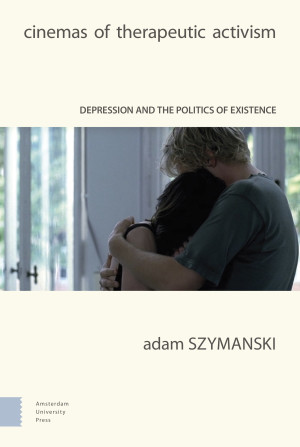The hegemonic meaning of depression as a universal mental illness embodied by an individualized subject is propped up by psychiatry’s clinical gaze. Cinemas of Therapeutic Activism turns to the work of contemporary filmmakers who express a shared concern for mental health under global capitalism to explore how else depression can be perceived. In taking their critical visions as intercessors for thought, Adam Szymanski proposes a thoroughly relational understanding of depression attentive to eventful, collective and contingent qualities of subjectivity. What emerges is a melancholy aesthetics attuned to the existential contours and political stakes of health.
Cinemas of Therapeutic Activism adventurously builds affinities across the lines of national, linguistic and cultural difference. The films of Angela Schanelec, Kelly Reichardt, Apichatpong Weerasethakul and Kanakan Balintagos are grouped together for the first time, constituting a polystylistic common front of artist-physicians who live, work, and create on the belief that life can be more liveable.

